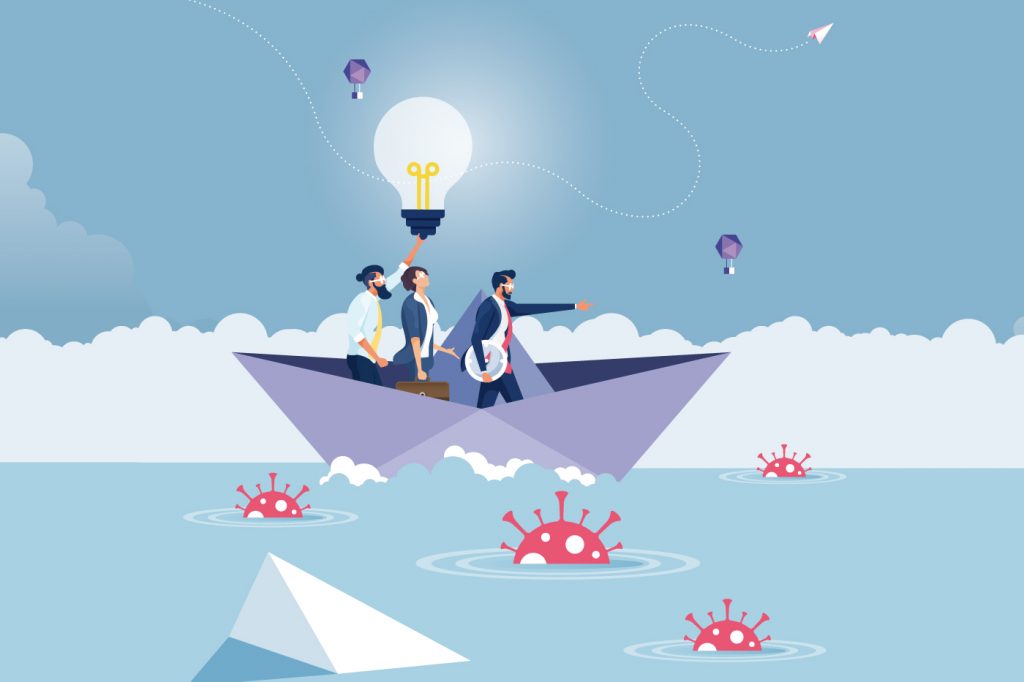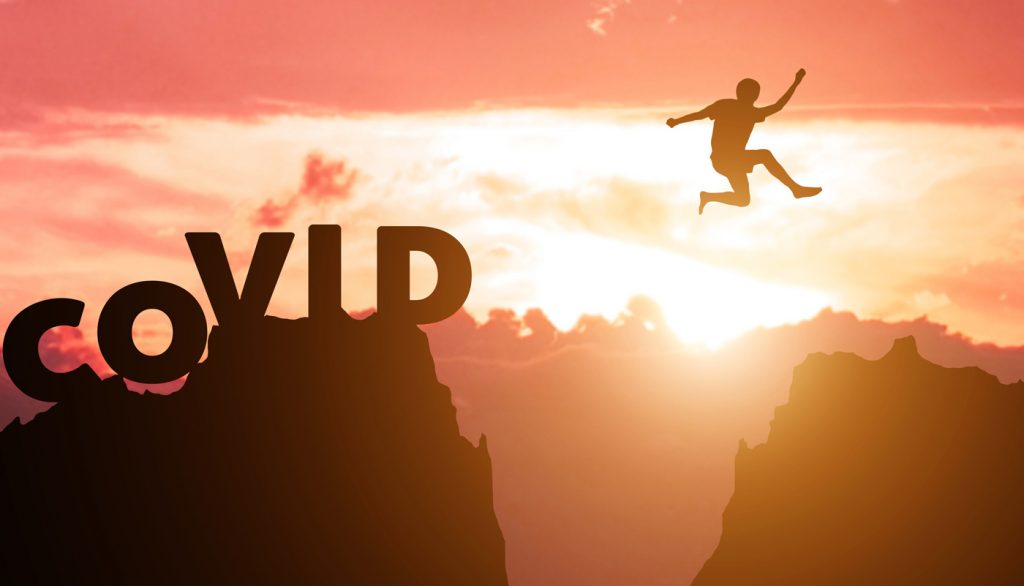Culture by Design: Pulling the Future Forward
After a spell of ‘quick-and-dirty’ training to cope with the pandemic, leaders must now get creative in order to lift teams to the next normal.

By Angela Yap Siew Peng
Striding to build resilience on all fronts, institutions are rushed to reimagine the status quo. As competing priorities vie for attention, corporations risk slipping back into ‘culture by default’ mode – where values, norms, rituals are created and reinforced with no clear direction; a perilous journey on autopilot.
Whether we consciously create it or not, culture happens. But a positive corporate culture doesn’t just happen. Peer behind the curtain and you’ll see that leaders direct the culture of their choosing.
This is culture by design, a conscious strategy to harness a corporate culture that is fit for excellence. It reengineers corporations from the inside out, paving the way for what leadership guru Mike Myatt calls “pulling the future forward”.
In his book Hacking Leadership, Myatt describes it thus: “Conventional wisdom dictates that you move to the future, but the most successful leaders don’t move toward the future, they bring the future to them – they pull the future forward. They focus on disrupting things now – not in some point in the future. They apply their creativity, not to a distant event, but to the immediate opportunity in which they can accelerate the future.”
Culture by design gets us to that sweet spot, where we ‘pull the future’ to us by pulling the organisation forward.
To align our perspective on culture, let’s clear the air on a couple of misnomers.
The first is the phrase ‘future of work’, a term that is increasingly overused (and perhaps, abused). The Organisation for Economic Co-operation and Development defines it as radical shifts to how we live and work, resulting from globalisation, digitalisation, and other megatrends. It raises essential questions around the skills we need for future jobs, the quality of those jobs, the support available if we’re unable to work or retire, and what voice we have in shaping these outcomes.
Many proclaim that a post-coronavirus world has shifted the goal post; that we should all hail a new future of work. But has it really?
Long before the pandemic hit our shores, banks had already spent over a decade cleaning up their act and doing many things right – investing in its people, strengthening operations, collaborating with fintech, and shoring up its digital capabilities – to prepare itself for the future of work. An advice that indicates otherwise is either misguided or ill-informed.

Take, for instance, this pandemic ‘nugget’ distilled by a prominent consulting firm, advising managers to “engage with radical empathy” through pulse surveys (quick two- to three-questions pushed to work phones) for team members to easily share their feelings. Is this really radical or is it fool’s gold – repetitive, repurposed advice that brings nothing new to the table?
In the past decade, organisations that have invested in effective talent management programmes undoubtedly worked to build empathy into its DNA. Empathy is the core of every good diversity policy, and though it varies in degrees, it is nonetheless present. The push technology suggested (i.e. morning text messages to the team) isn’t revolutionary either; all fundamentally sound managers practice this in one way or another, like the informal coffee break with colleagues or quick dial-ins a.k.a. scrums.
There is also a resurgent hype for all things digital – artificial intelligence, machine learning, distributed ledger, etc. Such technologies have been around since challenger banks debuted and their deployment in banking is far from the utopian vision technocrats would have you believe. In fact, banks which have forged ahead with fintech collaborations are still ironing out the creases.
Leaders who are truly invested in designing a positive culture will resist succumbing to hype and knee-jerk analysis. The pandemic merely accelerated the rate of change, and the priorities we have invested in over the past decade will outlast this crisis. As someone once wrote: “Be careful what voice you listen to, because if I change what you know, I can lead you to do whatever I want you to do.”
Upending the definition of ‘disruption’ is Phil Sager, Partner at Bain & Co: “We talk about this a lot – about organisations being disrupted, organisations changing. Our opinion is that it actually misrepresents what’s happening or what’s occurred in normal circumstances, but more so in the context of a health and financial crisis.”
“It’s not the organisation that’s been disrupted, it’s actually the employees that make up the organisation – [the people who] bring that organisation to life every day – that have been disrupted.
“Unlike the change of a reorganisation or new product launch, the disruption is not just in their work day – it’s actually things in their daily lives, things which they hold near and dear. Even in parts of the world that are back to normal, there is still a feeling that there has been a significant change to the way things work,” Sager said in a recent online webinar.
This heavy emotion underscores daily operations. Bain’s Macro Trends group tracked its employees’ feedback since the first wave in end 2019 and detected two unique trends:
The physical, social, and psychological effects are real and lasting. Leaders should not underestimate the disruptive effects of this pandemic on people’s lives. With this knowledge in hand, how do organisations design a culture that sets employees up for success?

Companies that exhibit a winning culture – defined by Bain as a strong internal compass which inspires employees – are 3.7x more likely to be business performance leaders. Among the values exhibited by strong cultures are collaboration, agility, integrity, people-centricity, innovation, accountability, and ambition.
Covid-19: Five New Human Truths that Experiences Need to Address, released by Accenture, suggests how corporates can address challenges head-on and prime their workforce for peak performance:
> Erosion of confidence. Planning and deciding even about basic decisions, such as holidays, where to live or work, or major purchases, is an anxious process. Familiarity will be more valuable and risk will be less tolerable to most people, thus brands that handle the crisis well will rise in stature and value. Beware as individualism may rise with more people adopting a look-after-yourself-first policy. To build trust in this context necessitates a ‘trust multiplier’ on the part of the organisation — actions that will rebuild trust quickly and credibly.
> Every business is a health business. The concerns about health amplified during the crisis and will not ebb once it is over. Health-related features are must-haves. Every business will need to understand how it can be part of a new health ecosystem that will dominate citizen thinking as employees will look to employers for advice, guidance, and care. Banks should run an Experience Health Check to understand customer/employee concerns and manage or eliminate them.
> The virtual century. Anything that can be done virtually, will be. Winners will be those who test and explore all of the associated creative possibilities which suit their organisation.
> Cocooning. At the height of the crisis, everyone was being told to self-isolate. This means an en masse return to home as the epicentre of life and experience. Many workers continue to spend more time at home and we can expect a shift in value systems, with employees placing a premium on meaningfulness and comfort in their lives. Companies who win will be those who zero their sights on the home. Creating a Scaling Roadmap – a plan on how to unlock capacity at scale to serve homes – is recommended so that service shutdown is unthinkable. Incentivise staff who are most frequently in contact with customers (call centre workers, delivery drivers, etc) for feedback on customer behaviour.
> The reinvention of authority. Greater acceptance for the role of government and companies in society, and the importance of collective behaviour, may occur. A culture may emerge that is more sensitive (read: disinclined) to ostentatious displays of exclusivity. This is a test of corporate values and is evident, for instance, in their display of care for workers’ mental health. Banks should define (and keep redefining) their crisis purpose and operational metrics, bearing in mind that now is not the time for winners and losers; we all need to win together. Consider an ambassador or influencer programme and do not forget that the authority you put on the pedestal should be based less on who is driving the most product, and more on who is helping the most people.
Culture is tough to get right.
Sir Ken Robinson, a global authority on creativity and innovation, often cites the cautionary tale of that once-revered brand, Kodak, which “went out of business because the whole company was ideologically committed to the idea that photography was a chemical process, and that digital photography was a fad”.
“The world around the company was changing, but the world within it was not. If the internal culture of an organisation does not adapt to the external culture, it is like a plant and it will eventually die.”
“The role of a creative leader,” says Robinson, “is not to have all the ideas; it’s to create a culture where everyone can have ideas and feel that they’re valued.”
This encapsulates the very spirit of culture by design. There are no cookie-cutter solutions here.
Get creative. Get going.
Angela Yap Siew Peng is a multi-award-winning entrepreneur, author, and writer. She is Director and Founder of Akasaa, a boutique content development firm with presence in Malaysia, Singapore, and the UK and holds a BSc (Hons) Economics.